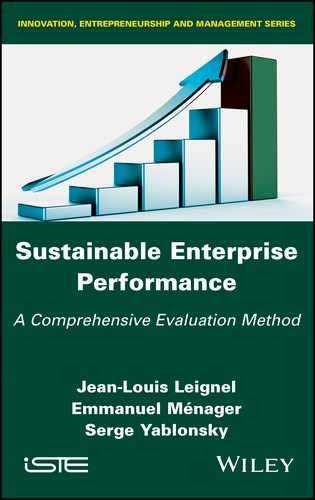6
Ethics and Compliance
6.1. The importance of ethics and compliance issues for performance
Business ethics are now at the heart of an enterprise’s performance. Anti-corruption laws as well as the evolution of values towards transparency and more sharing show to what extent an enterprise can be recognized or condemned for its ethics and respect for laws and good practices.
France comes in at number 23 in the 2015 Transparency International anti-corruption rankings. There is still action to be taken to improve this.
Ethics today are led by anti-corruption laws: Foreign Corrupt Practices Act of 1977 (FCPA) in the USA, the Bribery Act 2010 in the UK and the Sapin II law (2017, and which established the Agence française anticorruption) in France. They are supranational laws and sanctions are starting to fall, stemming from long negotiations. All of these laws have something in common: an approach that empowers enterprises by inviting them to implement good practices. Failure to incorporate these kinds of procedures as well as failure to respect them will result in sanctions.
Ethics are not limited to respecting anti-corruption laws. In addition, we find namely subjects relative to enterprise culture. Please see Chapter 5 specifically on “enterprise culture” for more information on this. Enterprise ethics have to be taken into consideration during all phases concerning the construction of global performance, from the strategic vision to the offer creation, ending with its production, distribution and evolution.
The enterprise adopts ethical behavior when it goes beyond its objectives related to efficiency, production, profit and profitability, in its functioning and in the conduct of missions as well as in its relationships with stakeholders, and takes action for the sake of common good.
Compliance can cover a vast domain, primarily legal, including competition law, transfer pricing, embargos, human rights, personal data and intellectual property. More generally, it may cover respect for good enterprise governance practices and aspects of internal control.
In the following questionnaire, we emphasized anti-corruption laws, including new French law. The other subjects are of variable interest depending on the enterprise and line of business. Adapted questionnaires can be applied as complements.
6.2. Case study: assessing the maturity of ethics and compliance aspects
6.2.1. iXBlue
iXBlue agreed to test the questionnaire and evaluate its maturity in terms of sustainable development. The following rubric concerning the “ethics and compliance” aspects was provided to illustrate the method.
The test was conducted by the authors in the form of discussions with the president of the firm, whom we thank sincerely. The maturity evaluations obtained in this way correspond to perceptions, which would, of course, need to be confirmed by precise audits.
iXBlue is an independent, high-tech enterprise with more than 600 people and a turnover of 120 million euros, 80% of which are exports. Its products include systems for inertial navigation, positioning, communication and acoustic imaging, boat and aquatic drones, as well as services at sea for hydrographic and oceanographic markets.
iXBlue offers cutting-edge technological solutions in the field of defense as well as civil markets in numerous countries around the world. Therefore, iXBlue deals with diverse cultures and complex legislation on a daily basis.
In this context, iXBlue has always showed loyalty in its commercial practices, even before the FCPA law. iXBlue has implemented a Compliance and Ethics Committee that consists of two external experts and the internal executive responsible for risk management and compliance. This committee has notably monitored efforts to comply with FCPA.
Table 6.1. iXBlue: overview of the maturity of the ethics and compliance focus. Summary of results of the detailed evaluation grid from the guide “Performance durable de l’entreprise : quels indicateurs pour une évaluation globale ?”1
| iXBlue Overview of the ethics and compliance focus | Non-existent | Discovering | Deploying | Under control | Optimized | Comments |
| × | ||||||
| Compliance and ethics are a part of the enterprise’s main values. | × | The tone is set by General Management and is anchored in the enterprise’s culture. | ||||
| The code of ethics and the plan to prevent corruption are written down and shared. They cover all areas of law, industry standards and good practices. | × | Enshrined in the code of conduct and rules of procedure, this is the second generation of corruption prevention procedures, taking into account feedback from the first. | ||||
| An ethics and compliance committee guarantees the enterprise’s engagements. | × | A committee with two external members and the compliance and risk officer has been created. It is in its third year of operation. | ||||
| Internal and external actors are trained in, aware of, and regularly evaluated on ethical rules defined by the enterprise and its ecosystem. | × | A training plan that complies with the SAP IN II law (French anti-corruption law, equivalent to the FCPA in the USA) has been implemented. An evaluation framework has been defined and is currently deploying. | ||||
| Contractual relationships, notably those with providers, comply with the models defined by the ethics committee. | × | New contract-type models with demands reinforced by ethics and probity are currently deploying with commercial partners. |
